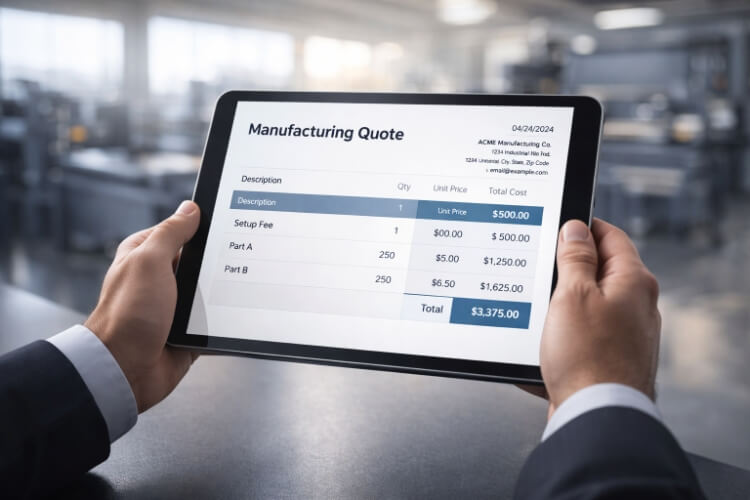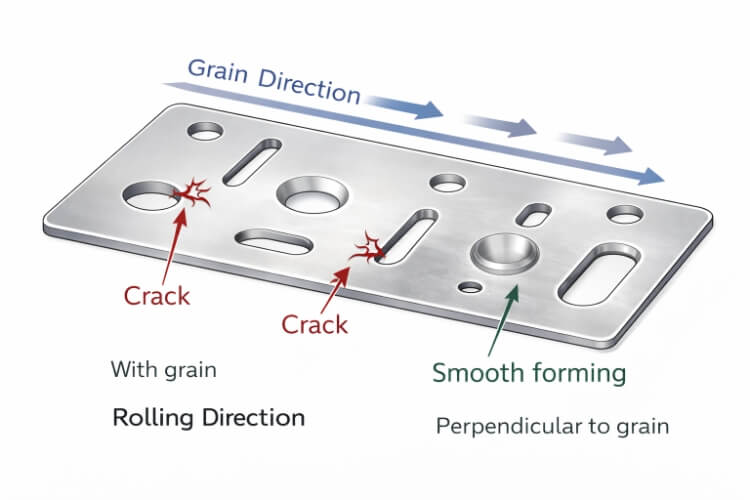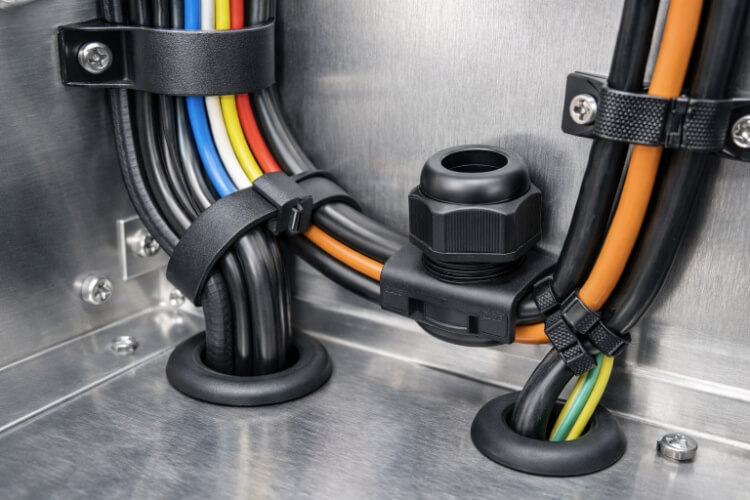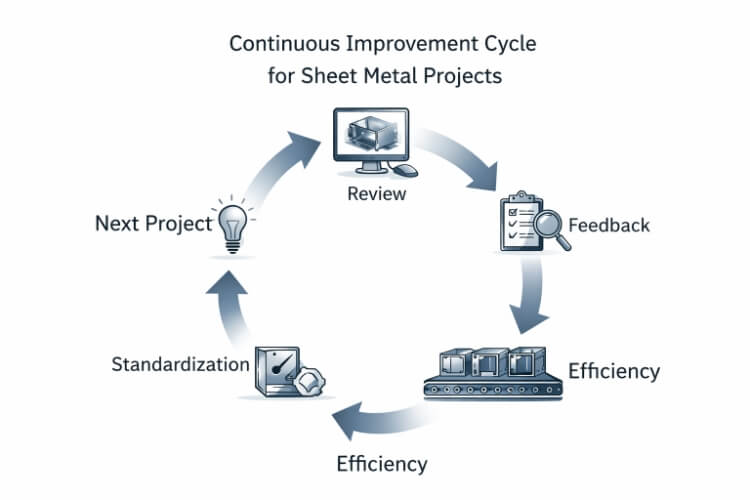Have you ever wondered how businesses produce complex products without owning massive factories? Contract manufacturing might be the answer you’re looking for. It’s a business model where companies hire other firms to produce parts or entire products on their behalf. This strategy allows businesses to focus on their core competencies while outsourcing production challenges.
Contract manufacturing is an outsourcing agreement where a hiring firm contracts a manufacturer to produce parts or complete products. Typically, this involves detailed specifications provided by the hiring company, which the manufacturer uses to create the desired output.
Stay tuned, and I’ll discuss the benefits and critical considerations of choosing contract manufacturing for your business needs.
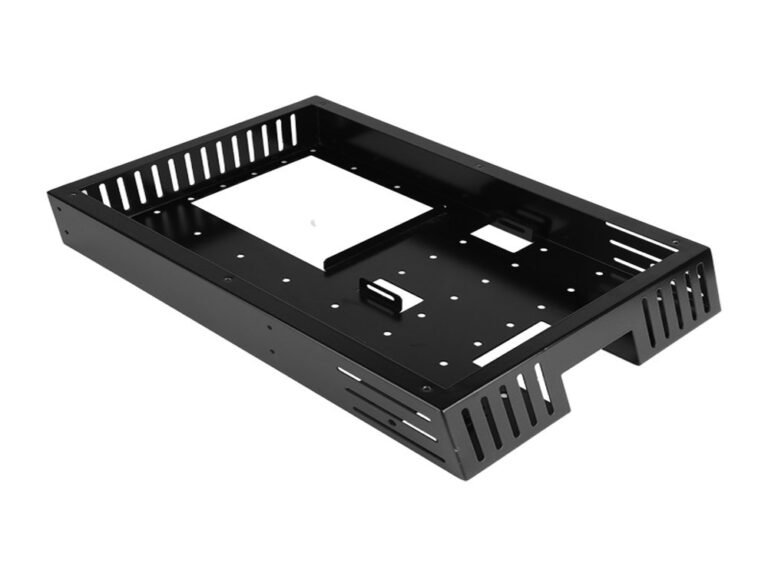
The Basics of Contract Manufacturing
What is Contract Manufacturing?
Contract manufacturing is a form of outsourcing where businesses entrust another company to produce their products or components. It spans various industries and is especially prevalent in sectors requiring specialized equipment or expertise that the original company may not possess.
- Definition and Scope: A hiring company (often a brand or product developer) partners with a third-party manufacturer to produce goods according to predefined specifications. The scope can range from producing small components to assembling entire products.
- Critical Characteristics of Contract Manufacturing: Flexibility, scalability, and cost-effectiveness are hallmarks of this model. It allows companies to adapt production volumes, leverage advanced manufacturing technologies, and manage costs without investing in facilities or workforce training.
Types of Contract Manufacturing
There are several types of contract manufacturing, each suited to different business needs and product types.
- Private Label Manufacturing: A manufacturer produces a finished product that another company brands. It’s common in the consumer goods sector, where supermarkets sell products under their brands but don’t produce them.
- Individual Component Manufacturing: Companies often contract manufacturers to produce specific parts or components.
- Labor or Service Subcontracting: This type involves outsourcing specific operations or services within the manufacturing process. For example, a company might subcontract the painting or finishing of a product to a specialist firm.
- End-to-End Manufacturing: Some contract manufacturers offer comprehensive services covering all production aspects, from initial design and prototyping to final assembly and shipping.
How Contract Manufacturing Works?
The Contract Manufacturing Process
The contract manufacturing process typically follows a structured path from conception to delivery. Here’s how it typically unfolds:
- Initial Consultation and Project Scope: The journey begins with a detailed discussion between the hiring company (often called the Original Equipment Manufacturer or OEM) and the contract manufacturer. This phase involves outlining the project requirements, expectations, and timelines.
- Design and Prototyping: The design phase kicks off after the initial agreement. This can involve transferring existing designs to the manufacturer or developing new designs in collaboration. Prototyping follows, allowing both parties to test and tweak the product before mass production.
- Production Process: Once the prototype is approved, full-scale production begins. The contract manufacturer utilizes their labor, expertise, and equipment resources to manufacture the products according to the agreed specifications.
- Quality Control and Assurance: Quality assurance is integral throughout the manufacturing process. The contract manufacturer implements various quality control measures to ensure the final products meet the required standards and specifications.
- Logistics and Delivery: After production, the contract manufacturer often handles the logistics of delivering the finished products to the OEM or directly to the market, depending on the agreement.
Key Players in Contract Manufacturing
The success of contract manufacturing relies heavily on the roles and responsibilities of the involved parties:
- Role of the OEM: The OEM provides product specifications, brand requirements, and market knowledge. They maintain product design ownership and sometimes provide the necessary raw materials. The OEM also sets quality standards and deadlines to align with market strategies.
- Responsibilities of the Contract Manufacturer: The contract manufacturer brings manufacturing expertise, capacity, and operational capabilities. Their responsibilities include adhering to the OEM’s specifications, maintaining quality standards, managing production schedules, and often overseeing the product’s logistics and delivery.
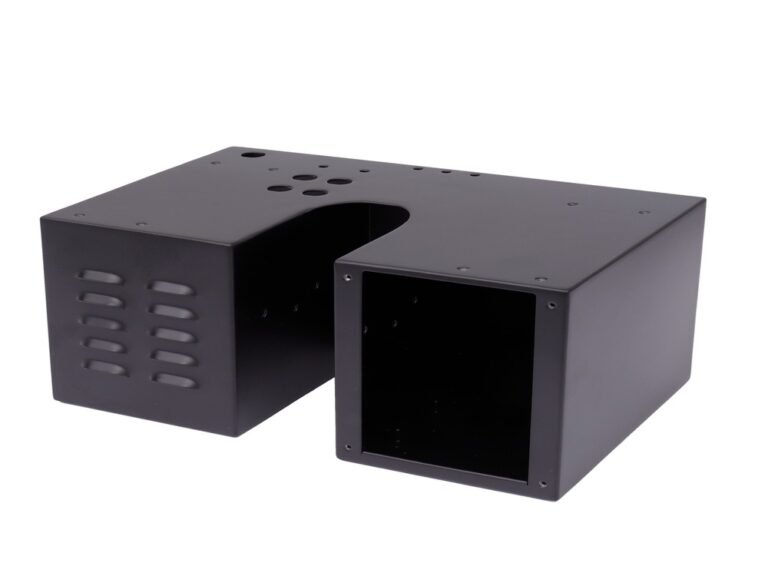
When Should You Use Contract Manufacturing?
Using contract manufacturing depends on various factors related to your business needs, capabilities, and strategic goals. Here are some critical scenarios when opting for contract manufacturing might be the best decision:
- Scaling Production: Contract manufacturing can be an effective solution if your business is experiencing rapid growth and you need to scale production quickly without significant capital investment. It allows you to leverage external resources to meet increasing demand.
- Access to Specialized Skills and Technology: When your product requires specific manufacturing capabilities or technologies you do not possess in-house, a contract manufacturer with the right expertise can produce high-quality results more efficiently.
- Reducing Costs: Contract manufacturing can be a cost-effective alternative to expanding your facilities, mainly if the manufacturer is located in a region with lower labor and production costs.
- Focus on Core Competencies: By outsourcing manufacturing, your company can focus more on core areas such as product development, marketing, and customer service.
- Entry into New Markets: Contract manufacturers often have established distribution channels and compliance knowledge for various markets. Partnering with them can facilitate more accessible and faster entry into new geographical areas.
- Risk Management: Contract manufacturing can help mitigate operational risks by diversifying your production across multiple geographic locations and suppliers.
- Flexibility and Agility: Contract manufacturing allows starting, stopping, or changing production quantities based on market demand without the constraints of fixed factory overheads.
Benefits of Contract Manufacturing
Contract manufacturing offers several compelling advantages for businesses looking to optimize their production processes and operational efficiency. Here’s how it can significantly impact your business:
Reduction in Capital Expenditure
Utilizing contract manufacturing services can dramatically reduce the need for capital investments in expensive equipment and facilities. Companies can allocate these resources to other vital areas.
Lower Labor Costs
Companies can benefit from cheaper labor without compromising quality by outsourcing production to contract manufacturers, especially in regions with lower labor costs.
Access to Advanced Skills and Technology
Contract manufacturers often specialize in specific types of production and keep up with the latest technological advancements in their field. By partnering with these experts, companies gain access to state-of-the-art technology and skilled personnel, enhancing the quality and efficiency of their products.
Improved Supply Chain Efficiency
Contract manufacturers typically have established supply chains that can be leveraged to reduce lead times and streamline logistics.
Focus on Core Competencies
Outsourcing manufacturing allows companies to concentrate on their core competencies, such as product innovation, customer service, and strategic growth initiatives. This focus can lead to better products and services, ultimately enhancing customer satisfaction and competitive advantage in the market.
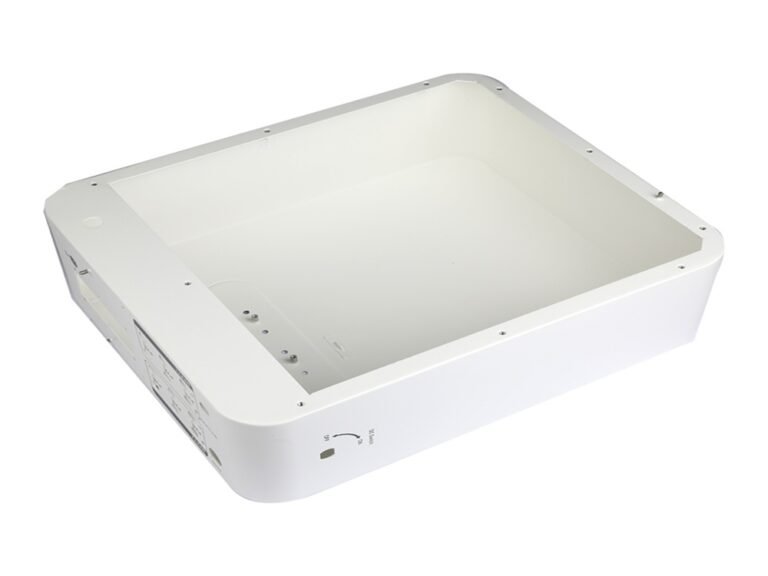
Risks and Challenges
While contract manufacturing offers numerous benefits, it also comes with its own risks and challenges that businesses must manage carefully. Here’s a look at some common risks associated with contract manufacturing and strategies to mitigate them.
Common Risks in Contract Manufacturing
- Quality Control Issues: One of the most significant risks in contract manufacturing is variability in product quality. Direct oversight is necessary for the finished products to consistently meet the original company’s standards, potentially impacting brand reputation and customer satisfaction.
- Intellectual Property Concerns: When outsourcing production, there’s a risk that proprietary designs, technologies, or trade secrets could be exposed to third parties or even competitors, especially without proper legal safeguards.
- Supply Chain Complexity: Relying on external manufacturing entities increases the supply chain’s complexity. This can lead to issues with communication, logistics, and delivery times, which can affect the overall efficiency of the supply chain.
Mitigating Risks
- Choosing the Right Partner: Carefully selecting a contract manufacturer is crucial. Look for partners with a strong track record, robust quality control processes, and an understanding of your industry standards.
- Contractual Safeguards: Detailed contracts are essential to protect intellectual property and ensure compliance with quality standards. These contracts should clearly define the scope of work, quality requirements, intellectual property rights, and confidentiality agreements.
- Regular Audits and Compliance Checks: Conduct regular audits and quality checks at the manufacturing site. Regular compliance checks ensure the manufacturer adheres to all contractual agreements and industry regulations.
Choosing a Contract Manufacturer
Selecting the proper contract manufacturer is a critical decision that can significantly influence your product’s and business operations’ success. Here’s a guide on approaching this process and what criteria to consider.
Criteria for Selecting a Contract Manufacturer
- Expertise and Technological Capability: Assess the potential manufacturer’s technical skills and technological capacity. They should have the equipment and expertise to meet your product specifications and quality standards.
- Reputation and Reliability: Investigate the manufacturer’s market reputation. A reliable contract manufacturer should have a proven track record of timely delivering quality products.
- Financial Stability: The financial health of a contract manufacturer is vital. A financially stable manufacturer ensures continuity, risk mitigation, and the ability to invest in quality improvements and technological upgrades.
The Selection Process
- RFI and RFP Stages: Start with a Request for Information (RFI) to gather general information from potential manufacturers. Following the RFI, issue a Request for Proposal (RFP) with specific requirements, quantities, and timelines. The RFP should be detailed to ensure that all responding manufacturers are quoting on the same basis.
- Evaluating Proposals and Capabilities: Evaluate the proposals based on how well they meet the criteria specified in the RFP. Consider factors such as cost, capacity to scale, turnaround times, and the manufacturer’s specific capabilities that align with your product needs.
- Finalizing the Contract: Once you’ve selected a manufacturer, negotiate the contract terms. This should include detailed service level agreements, quality control measures, intellectual property rights, confidentiality clauses, and delivery schedules.
Conclusion
Contract manufacturing is an increasingly popular solution for businesses looking to streamline their production processes, reduce operational costs, and focus on their core competencies. Outsourcing manufacturing to a third party allows companies to leverage specialized skills, advanced technology, and scalable production capabilities without the significant investment typically associated with expanding in-house manufacturing.
Do you need a reliable sheet metal parts manufacturer? Shengen is the place to go. We specialize in sheet metal laser cutting, bending, surface finish, and CNC Machining. Reach out to Shengen Today and seek help from professionals!
FAQs
What is the difference between contract manufacturing and outsourcing?
Contract manufacturing is a specific type of outsourcing focused primarily on producing goods. It involves a company hiring a third-party manufacturer to produce parts or entire products under the hiring company’s label. On the other hand, outsourcing can refer to delegating any business process, including customer service, HR functions, or IT services, to external parties.
How does contract manufacturing affect intellectual property rights?
Contract manufacturing poses certain risks to intellectual property (IP) as production processes and product designs are shared with third-party manufacturers. To safeguard IP rights, it’s crucial to establish clear contractual agreements that cover confidentiality, non-disclosure, and the specific rights and obligations related to the IP involved.
What are the signs of a reliable contract manufacturer?
A reliable contract manufacturer typically exhibits several key characteristics:
- Consistent Quality: They consistently produce goods that meet or exceed the required standards.
- On-Time Delivery: They adhere to agreed-upon timelines for product delivery.
- Financial Stability: They have solid financial footing, ensuring they can sustain operations and investments.
- Transparent Communication: They maintain open lines of communication, providing regular updates and being responsive to queries.
How can companies ensure quality when using contract manufacturers?
To ensure quality when using contract manufacturers, companies should:
- Conduct thorough vetting during the selection process, including visiting the manufacturing facilities.
- Establish clear quality benchmarks and standards in the contract.
- Implement regular audits and inspections to monitor quality throughout the production process.
- Maintain an open line of communication to address any quality issues promptly.
What are the latest trends in contract manufacturing technology?
The latest trends in contract manufacturing technology include:
- Automation and Robotics: Increased use of automated systems and robotics to enhance precision and efficiency in production.
- Advanced Data Analytics: Leveraging big data and predictive analytics to optimize manufacturing processes and supply chain management.
- 3D Printing: Utilizing additive manufacturing techniques to reduce costs and time in prototyping and production.
- Internet of Things (IoT): Integrating IoT devices to improve connectivity and real-time tracking of the manufacturing processes.
Hey, I'm Kevin Lee

For the past 10 years, I’ve been immersed in various forms of sheet metal fabrication, sharing cool insights here from my experiences across diverse workshops.
Get in touch

Kevin Lee
I have over ten years of professional experience in sheet metal fabrication, specializing in laser cutting, bending, welding, and surface treatment techniques. As the Technical Director at Shengen, I am committed to solving complex manufacturing challenges and driving innovation and quality in each project.

